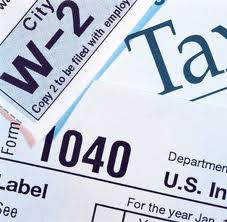
 Colorado State Corporate Income Tax 2024
Colorado State Corporate Income Tax 2024
1.0 -
Colorado Corporate Income Tax Brackets
| Tax Bracket (gross taxable income) | Tax Rate (%) |
| $0+ | 4.630% |
Colorado has a flat corporate income tax rate of 4.630% of gross income. The federal corporate income tax, by contrast, has a marginal bracketed corporate income tax.Colorado's maximum marginal corporate income tax rate is the 0th lowest in the United States, ranking directly below Mississippi's 5.000%.
1.1 -
Colorado Business Tax
What is the Colorado corporate income tax?

Colorado's corporate income tax is a business tax levied on the gross taxable income of most businesses and corporations registered or doing business in Colorado. The Colorado corporate income tax is the business equivalent of the Colorado personal income tax, and is based on a bracketed tax system. Similar to the personal income tax, businesses must file a yearly tax return and are allowed deductions such as wages paid, cost of goods sold, and other qualifying business expenses.
What kind of businesses have to pay the Colorado corporate income tax?
In general, all businesses operating in Colorado which are not registered as a flow-through entity (like a sole proprietorship, a partnership, or an S-Corporation) must report their income and pay both Colorado and Federal corporate income taxes on their earnings. The most commonly used business structure that is subject to corporate taxes is a C-Corporation.
Because C-Corporations pay corporate taxes on their revenue in addition to the personal income taxes shareholders and owners pay on profits withdrawn from the company, profits received from a C-Corporation are subject to a phenomenon known as double taxation.
S-Corporations and other flow-through entities aren't subject to the double taxation of revenue imposed on a C-Corp, because they aren't required to pay corporate taxes on their revenue. However, the owners or members of the corporation must report their share of the corporation's income on their personal tax returns and pay Colorado and federal income tax.
All incorporated Colorado businesses, regardless of whether or not they are required to pay any taxes, should file at least an informational tax return with the Colorado Department of Revenue as well as a federal business tax return (Form 1120) with the IRS.
A home business grossing $55,000 a year pays $2,546.50
A small business earning $500,000 a year pays $2,315.00
A corporation earning $10,000,000 a year pays $463,000.00
1.2 -
Colorado Nonprofit Tax Exemptions
Certain nonprofit entities registered in Colorado may be able to exempt some or all of their qualifying income from Colorado and federal income taxes. Specifically, certified Colorado 501(c) nonprofit corporations are exempt from the Colorado corporate income tax. Some of the most common 501(c) organizations include:
- Labor Unions
- Labor unions and worker's organizations are exempt from taxation on dues and other forms of income. Covered under § 501(c)(4) and § 501(c)(5) of the IRC.
- Tax-Exempt Recreational Organizations
- Social clubs and recreational groups may collect dues and other funds as a tax-free organization as long as the primary purpose of the group is not for profit. Covered under § 501(c)(7) of the IRC.
- Educational & Scientific Institutions
- Nonprofit educational and scientific groups are tax-exempt, including nonprofit schools and colleges and certain research institutions. Covered under § 501(c)(3) of the IRC.
- Tax-Exempt Religious Institutions
- Bona-fide religious institutions including churches, synagogues, and mosques are exempt from corporate income taxes under § 501(c)(3) of the IRC
- Tax-Exempt Charities
- Bona-fide charities are exempt from all corporate income taxes, including both religious and non-religious charities. Covered under § 501(c)(3) of the IRC.
In order to gain Colorado tax-exempt status, a corporation must qualify as a 501(c) and obtain a Nonprofit Tax-Exempt ID Number from the IRS. Colorado may also require nonprofits to file additional paperwork with the Colorado Department of Revenue to gain exemption from Colorado's corporate taxes.
1.3 -
Federal Corporate Income Tax Brackets 2024
| Tax Bracket ($) | Marginal Corporate Income Tax Rate |
| $0 to $50,000 | 15% |
| $50,000 to $75,000 | $7,500 + 25% Of the amount over 50,000 |
| $75,000 to $100,000 | $13,750 + 34% Of the amount over 75,000 |
| $100,000 to $335,000 | $22,250 + 39% Of the amount over 100,000 |
| $335,000 to $10,000,000 | $113,900 + 34% Of the amount over 335,000 |
| $10,000,000 to $15,000,000 | $3,400,000 + 35% Of the amount over 10,000,000 |
| $15,000,000 to $18,333,333 | $5,150,000 + 38% Of the amount over $15,000,000 |
| $18,333,333 and up | $6,416,667 + 35% of the amount over $18,333,333 |
In addition to the Colorado corporate income tax, Colorado corporations must also pay the federal corporate income tax. Like the personal income tax the federal business tax is bracketed based on income level, with eight corporate tax brackets.
The federal corporate tax's brackets differ from the personal income tax in that the brackets are not completely progressive (the last tax bracket is not the highest). This allows the corporate tax burden to be spread more evenly among companies with various revenue levels. The current corporate tax rates have been in effect since 1994 (unlike the federal income tax brackets, which are updated yearly for inflation).
All Colorado state taxes are deductible from gross income when calculating federal taxes, so any Colorado corporate income tax paid can be deducted from a business' gross taxable income before calculating your federal taxable income.
 How can we improve this page? We value your comments and suggestions!
How can we improve this page? We value your comments and suggestions! Send Instant Feedback About This Page



 Donate BitCoin:
Donate BitCoin: